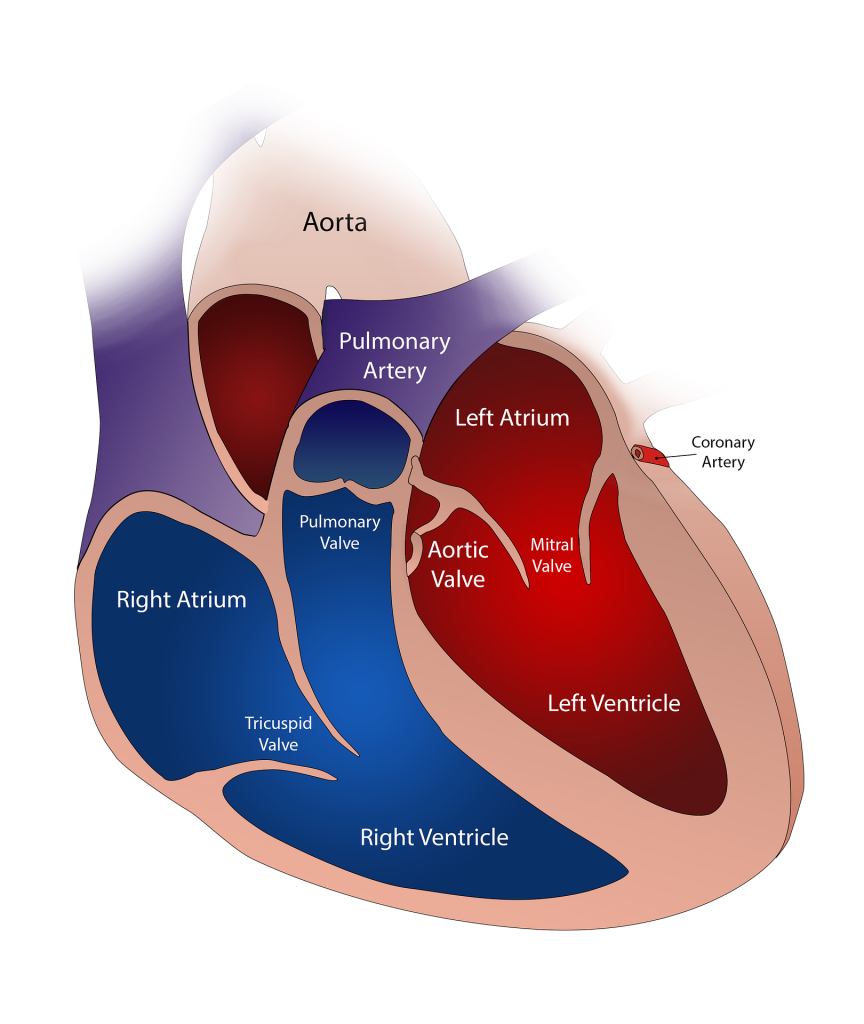Medical studies have suggested that smoking cannabis regularly can lead to structural changes within a user’s heart.
Queen Mary University of London studied the connection between smoking cannabis and heart function, with MRI images being used from 3,000 participants including 152 current or former cannabis users.
It found that regular cannabis use can enlarge the left ventricle (the main pumping chamber of the organ) and show early signs of impaired heart function, which is of significant concern considering the United States and Canada’s recent wave of cannabis legalisation.
The left ventricle is one of four chambers of the heart. It is also the thickest of the heart’s chambers and is most vital as it is responsible for pumping oxygenated blood to tissues all around the body, whereas the right ventricle only pumps blood to the lungs. Negative effects impacting the left ventricle can be detrimental to the heart and can lead to heart problems and, in extreme cases, heart failure.
The average age of the participants in the study was 62 while 55% of respondents were female. It also found that regular cannabis smokers are more likely to be younger males who smoke tobacco regularly and live in social deprivation.
Out of 3,407 participants, 3,255 had rarely or never used cannabis, 105 had previously used it regularly but it had been more than five years before they were interviewed and 47 were still using cannabis regularly.
The study found that the group still using cannabis regularly were more likely to have larger left ventricles and show early signs of impaired heart function, however there was no difference between all three groups in the mass of the left ventricle and the amount of blood ejected with each heartbeat.

Luckily, the study found that those who had previously used cannabis regularly but had since quit had similar heart size and function to the group of participants who had rarely or never used cannabis.
“Our findings are not conclusive but the research took place against a backdrop of decriminalisation and legalisation of recreational cannabis use in many countries,” said lead investigator Mohammed Khanji, MBBCh, PhD, senior clinical lecturer at Queen Mary University of London.
“We urgently need systematic research to identify the long-term implications of regular consumption of cannabis on the heart and blood vessels.”
Emerging industry
The new study comes after talk of the UK potentially legalising cannabis over the next decade, with the Conservative government seeming to be keen to latch onto the success of the emerging industry across the Atlantic.
However, findings could put the UK’s potential drive towards legalisation in jeopardy, which is in line with the World Health Organisation’s comments about the possible negative impact of cannabis when used in a non-medical instance.
“The World Health Organisation has warned about the potential harmful health effects of non-medical cannabis use and called for more research specifically around the cardiac impact,” added Khanji.
“We believe this is the first study to systematically report changes in heart structure and function associated with recreational cannabis using cardiac MRI, which is a very sensitive imaging tool and the current reference standard for assessing cardiac chambers.”
It’s worth noting that the study examined a variety of potential causes for heart issues including age, diabetes, blood pressure, smoking and alcohol consumption.
The study could also be deemed inconclusive as the sample size of regular cannabis smokers was actually very slight compared to the total number of subjects examined. The sample also included only 4% of people who are not Caucasian, adding to the limitations of the study.
Many of the studies relating to heart function and cannabis also have limitations in that cannabis use is rarely an isolated instance, as it is often used alongside tobacco and alcohol or both.
Previous studies reiterate findings
While this was one of the first studies examining heart function via an MRI scan, a study from the American heart journal in 2013 found habitual cannabis use before a heart attack was associated with a higher rate of death over the following 18 years. Although the difference wasn’t found to be statistically significant, the summary suggests it to be beneficial for doctors to caution patients who suffer from coronary heart disease and patients who have a high risk of cardiovascular disease to abstain from smoking cannabis.
As previously reported by the Leaf Desk, there has also found to be a worrying link between cannabis use and mental illnesses. It’s known that depression can eventually become a risk factor for heart disease, so cannabis use could also be attributed to heart disease, although the link between cannabis and depression needs to be substantiated.
Despite the fact that many claim that cannabis in edible form is safer than when smoked traditionally, behavioural scientist Dr Reid claims that even edibles still have “some [effects] in terms of heart rate and blood pressure”.
Edibles still most likely remain the optimal choice for consumption, as it avoids the toxins commonly associated with smoking cannabis being released as well as having a preferable reaction on the oxygen carrying capacity of the blood, as smoking reduces the oxygen transport through the body.
Dr Reid also suggested that the correlation between cannabis use and heart disease is still “largely theoretical”, however the existing evidence of cannabis potentially leading to issues such as a quicker onset of excessive induced angina during a stress test among people with heart disease, along with being a negative influence on those who suffer from irregular heartbeat or arrhythmia demonstrates that those with heart issues should converse with their doctor and take caution before using cannabis.
Cannabis as medicine
It’s easy to discredit cannabis due to its status as an illegal drug across the world for more than a century, but it does in fact have numerous medicinal properties, with many patients solely relying on it to treat a variety of illnesses.
And while cannabis may have a few side effects, it has no more than traditional medication that can cause a series of debilitating issues.
While unconfirmed, there has been speculation claiming that negative reports about cannabis are potentially being funded by big pharmaceutical companies who have a vested interest in keeping cannabis away from the shelves as it would subsequently reduce sales in the multi-billion dollar industry.


